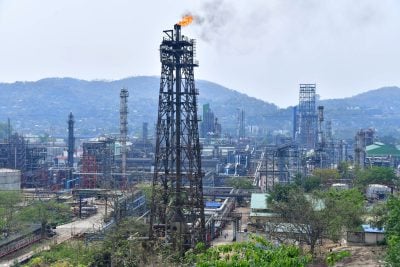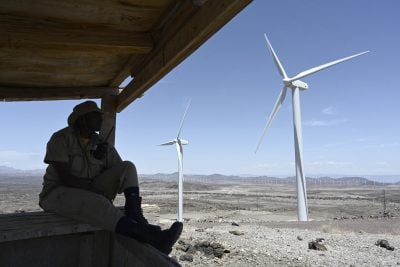On 16 August, President Muhammadu Buhari signed the long-awaited Petroleum Industry Act (PIA) into law in a bid to reform Nigeria’s lucrative but chaotic oil and gas industry. In the last 20 years, multiple governments have attempted to pass an all-encompassing bill, the scope and complexity of which has ensured repeated failure.
In September 2020, President Buhari sent a new Petroleum Industry Bill to the National Assembly for consideration by the Senate and the House of Representatives. After several months of scrutiny, the bill passed on 1 July, a relatively quick process which avoided a protracted clause-by-clause negotiation.
Oil and gas is the mainstay of Nigeria’s economy, contributing about 10% to the country’s gross domestic product. Oil exports revenue represents around 86% of Nigeria’s total exports revenue. The PIA provides a new legal, administrative, regulatory and fiscal framework, and attempts to reshape community relations with the industry while targeting waste and corruption.
Given the bill’s tangled history, its passage represents a significant political victory for the president. With the oil price recovering to $74 a barrel from lows of around $35 last year as the world economy adapts to the Covid-19 pandemic, the government hopes that the PIA will help to capture more of the country’s oil revenues and boost a limited federal budget.
Joe Nwakwue, an oil and gas expert and former chair of the Society of Petroleum Engineers, says the signing of the act is a step in the right direction.
“[The act will allow] greater investments across the value chains with potential for more employment, taxes and enhanced economic activities, peace, development, and economic growth in the host communities, a more efficient and competitive sector and improved value capture across the chain.”
Numerous challenges
The oil and gas industry has long been dogged by structural, legal, regulatory and operational challenges that have undermined its performance while repelling credible investors.
Value has leached away through opaque licensing deals, unaccountable middlemen, a lack of refining capacity and graft in the government and state-owned Nigerian National Petroleum Corporation (NNPC). Sabotage and pipeline theft in the oil-rich Niger Delta have ensured that the taxpayer loses out on billions of dollars in annual revenues. As industry problems have mounted, there has also been a decline in Nigeria’s oil production, which currently stands at 1.5m barrels per day, compared with a peak of 2.5m barrels a day in 2005.
Meanwhile, the downstream and midstream sectors involved in transportation, storage, marketing and refining have failed to contribute to the growth of the industry.
Nigeria has four public refineries with a combined capacity of 445,000 barrels per day. However, the refineries have been operating at a fraction of their capacity for over two decades, making Nigeria dependent on the importation of refined petroleum products for 80% of domestic consumption. In 2020, the Nigerian National Petroleum Commission (NNPC) revealed that the refineries incurred a total loss of N154bn ($374m).
Oil and gas expert Zakka Bala says that the PIB can offer a new vision for the country’s refineries and reboot the midstream and downstream sectors.
“We hope that the refineries will start working and we can be moving crude oil from the oil wells within Nigeria to the respective Nigerian refineries.”
Transparency concerns
The Nigerian oil and gas industry has historically been enmeshed in corruption, with allegations centring on the role of unwieldy NNPC, which has acted as both trader and regulator. In 2012, a parliamentary probe revealed a $6.8bn fuel subsidy scandal involving top Nigerian officials.
Current NNPC managing director Mele Kyari assumed office in 2019 promising a new battle against corruption. The law provides for the selling of shares in a reformed NNPC, the replacement of regulatory bodies, and the reduction and streamlining of royalties.
Bala says the PIA will tackle long-standing concerns over corrupt practices and a lack of transparency: “The Petroleum Industry Act is going to have some value if we decide to wear our thinking cap and decide to remove political affiliations, religious affiliations, sectional affiliations and even sectarian affiliations. If we remove all these nepotistic attitudes, to a great extent, we are going to benefit from the Petroleum Industry Act.”
The legislation suggests the NNPC will eventually become “a commercially oriented and profit-driven national petroleum company” independent of government and audited annually, although no dates are yet given for a share sale.
The act also lays down rules for environmental cleanups, introduces new dispute-resolution mechanisms between government and oil companies, and sets up a midstream government infrastructure fund.
“It would play a vital role in addressing the inefficiencies plaguing the NNPC, from slow approval for oil projects to budget shortfalls that hinder its ability to pursue public-private partnerships. What’s more, the act would create a supportive environment for both IOCs and indigenous petroleum companies, help protect the environment and the interests of host communities, support economic diversification in Nigeria, and critically important, promote transparency in Nigeria’s administration of petroleum resources,” wrote NJ Ayuk, executive chairman of the African Energy Chamber, in October 2020.
Relations with local communities
One of the most contentious areas in negotiations was the amount of money companies pay to local communities, who pushed for a share of 10% of regional oil wealth from production. The House of Representatives approved an increase in the share of regional oil wealth generated from production that host communities can claim from 2.5% to 5%, but the Senate ultimately approved 3%.
Bala says the interaction with host communities will be key to the success of the PIB: “Regardless of how the divisions will satisfy the international investors, when they come, they will work with local communities. So there is a need for us to make sure the local communities are comfortable.”
Nwakwue says that the PIA offers a chance to rebuild relations with host communities, who have long failed to see any benefit from the sector while suffering the environment consequences.
“The terms of the Petroleum Industry Act are better and far more competitive than what we have today,” he says. “It offers an olive branch to the host communities for shared prosperity, and therefore should be able to attract significantly more investments in the sector.”
Nevertheless, the test of the act’s effectiveness will lie in its implementation. Protecting that process from the vested interests who have traditionally derailed Nigeria’s extractive industries will be of paramount importance, he argues.
“We must always keep in view the stated objectives of the action when implementing it. Achieving the timelines and getting the right people into the institutions created by the act is vital,” he says. “We should, as much as possible, insulate the implementation process from the influence of politics and special interests.”
Want to continue reading? Subscribe today.
You've read all your free articles for this month! Subscribe now to enjoy full access to our content.
Digital Monthly
£8.00 / month
Receive full unlimited access to our articles, opinions, podcasts and more.
Digital Yearly
£70.00 / year
Our best value offer - save £26 and gain access to all of our digital content for an entire year!
 Sign in with Google
Sign in with Google 



